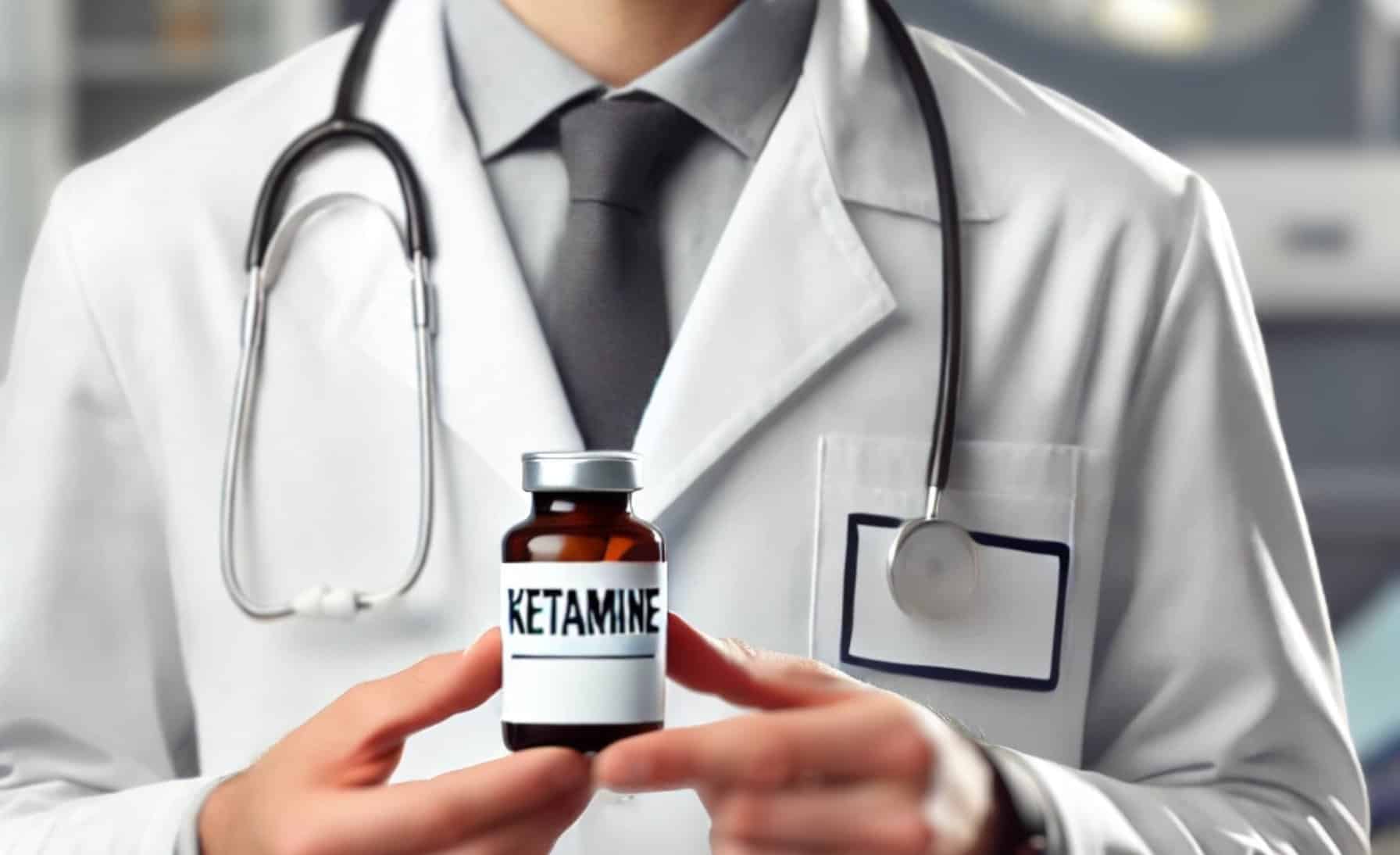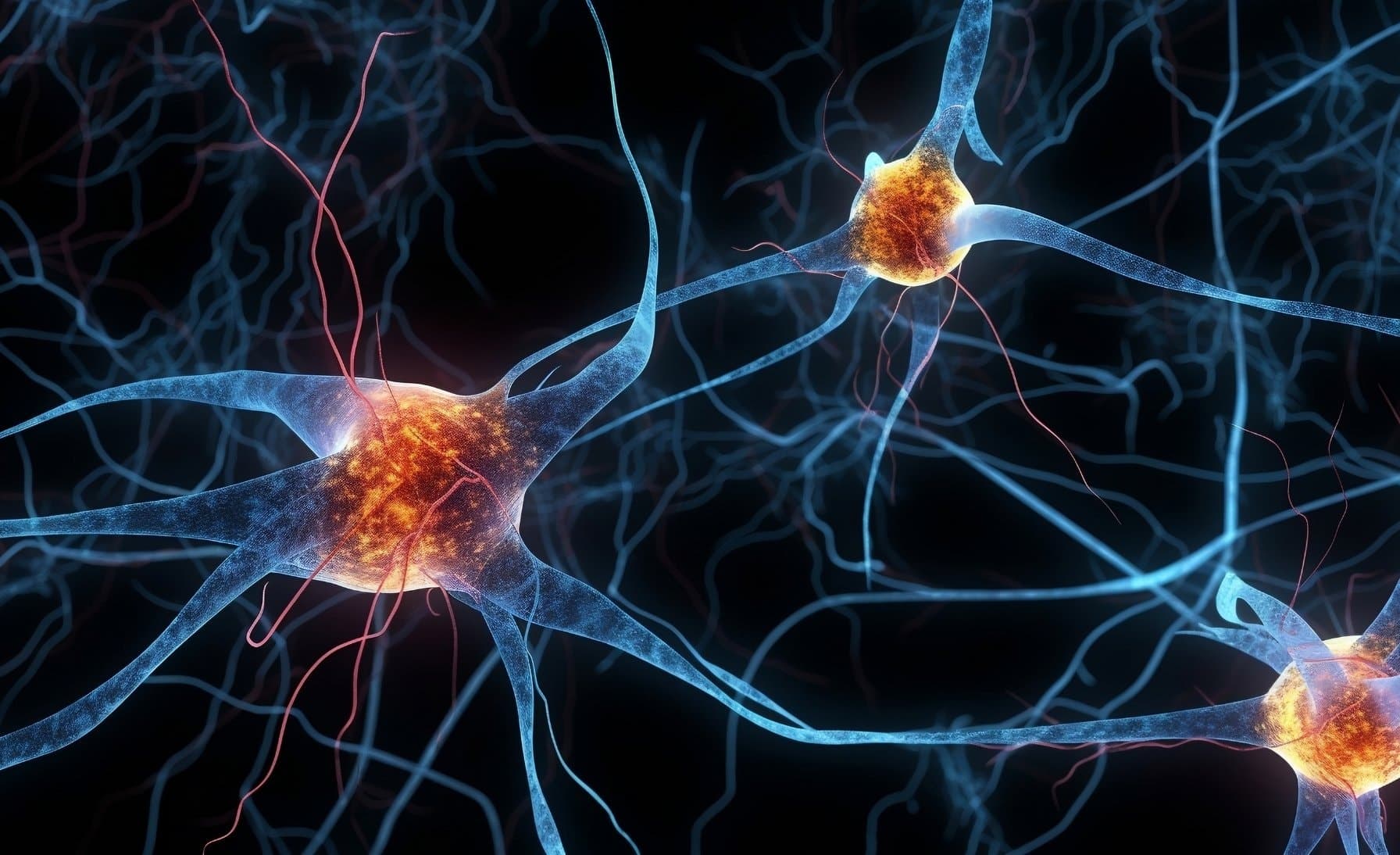
Ketamine, a medication once used primarily as an anesthetic, has evolved into a groundbreaking treatment for mental health issues like severe depression and treatment-resistant depression. Despite ketamine’s potential in treating depression and its ability to relieve symptoms quickly, its controversial reputation has only grown over time.
Media coverage around tragic events, such as the recent passing of actor Matthew Perry, has unfairly connected ketamine to negative outcomes without fully exploring its therapeutic context.
To reduce stigma and offer better understanding, this article will clarify ketamine’s uses, explore its history, and share real transformation stories of patients who have benefited from controlled ketamine treatment at PointHealth Clinic, like Kenneth Mars.
What is Ketamine Therapy?
Ketamine therapy, also known as ketamine treatment, is a revolutionary approach to addressing various mental health conditions, particularly treatment-resistant depression and severe depression. Originally developed as an anesthetic, ketamine has found a new purpose in the realm of mental health due to its rapid-acting effects. Unlike traditionally used antidepressants, which can take weeks or even months to sometimes minimally good show results, ketamine therapy can provide relief within hours or days. This makes it a promising option for individuals who have not responded to conventional treatments, offering a new avenue of hope and recovery.
The Medical Origins of Ketamine

Originally developed in the 1960s, ketamine was created as an anesthetic to alleviate pain and discomfort during surgery. It works by targeting NMDA receptors in the brain, blocking pain signals and altering perception to reduce sensitivity to pain.
Ketamine’s effectiveness without causing drastic drops in blood pressure or respiratory function made it particularly valuable in surgical settings and veterinary clinics. Its unique action on nerve cells and opioid receptors helps create a state of dissociation in patients, enabling pain management without sedation.
Just as with medications like morphine and epidurals, ketamine’s effects are safe and therapeutic when administered by health care professionals. However, misuse in recreational settings can cause dissociative experiences and long-term harm.
Recreational ketamine, also known as “Special K,” has often been used irresponsibly at high doses, leading to a negative association with the drug. Still, clinical trials and ongoing research show that controlled ketamine usage in medical settings has shown significant benefits for individuals with psychiatric disorders like major depression, bipolar disorder, and substance use disorders.
Over time, researchers observed that ketamine’s interaction with brain receptors could have broader effects on mood regulation, which led to its exploration as a potential treatment for depression. In the early 2000s, studies began to uncover that ketamine’s unique mechanism allowed it to “reset” brain patterns in people suffering from treatment-resistant depression. Ongoing research at institutions like the Yale School of Medicine continues to explore the full scope of ketamine therapy benefits for individuals facing severe mental health challenges.
Ketamine’s Role in Treating Treatment Resistant Depression and Other Mental Health Conditions

Unlike traditional antidepressants, which can take weeks or months to start working, ketamine treatment offers rapid relief for people with severe depression and suicidal thoughts. In clinical trials, ketamine has shown promise in treating depression by alleviating symptoms within hours or days, a stark contrast to oral antidepressant medications, which typically require prolonged use.
This immediacy is invaluable for people struggling with treatment-resistant depression, giving them hope for effective relief even when other depression medications have failed.
Through IV infusion therapy, ketamine acts quickly on brain receptors to help alleviate depression symptoms and encourage the brain to “reset” its response patterns. Patients undergoing ketamine therapy often report significant improvements in mood, energy, and resilience. For some, these ketamine therapy benefits provide a chance to recover from the depths of major depression and regain control over their mental well-being.
Notably, ketamine has been shown to benefit individuals with other psychiatric disorders, including bipolar disorder and alcohol use disorder. Ketamine clinics offer medically-supervised sessions to treat depression, and in 2019, the FDA approved a ketamine nasal spray (esketamine) for use in patients with treatment-resistant depression. This milestone reflected ketamine’s growing acceptance as a safe, powerful option in mental health care, though more research is ongoing to understand its full impact.
Benefits of Ketamine Treatment
Ketamine treatment offers several compelling benefits that set it apart from traditional depression therapies:
Rapid Relief from Depression Symptoms: One of the most significant advantages of ketamine treatment is its ability to alleviate depression symptoms quickly. Patients often report feeling better within hours or days, a stark contrast to the weeks or months required for traditional antidepressant medications to take effect.
High Response Rates: Clinical trials have demonstrated that ketamine treatment has high response rates, with up to 70% of patients experiencing significant improvements in their depression symptoms. This is particularly encouraging for those who have struggled with treatment-resistant depression.
Long-Term Effects: Beyond its immediate impact, ketamine treatment has shown potential for long-lasting benefits. Some studies suggest that the positive effects of ketamine can persist for several weeks or even months after treatment, providing sustained relief from depression symptoms.
The Stigma of Ketamine as a ‘Club Drug’

Like many powerful medications, ketamine has a complex dual identity. While ketamine is a breakthrough treatment for mental health conditions, it has also been abused recreationally. Known as a “club drug,” ketamine is popular for its dissociative effects, earning nicknames like “Special K.” When taken in higher doses without medical supervision, ketamine can induce a dissociative experience—causing users to feel disconnected from reality.
The misuse of ketamine has been known to creates distorted feelings and can result in substance abuse and long-term dependency. Over time, such recreational misuse has stigmatized ketamine therapy for depression, making it harder for individuals to see the drug’s legitimate medical benefits.
Risks of Recreational Use
Recreational use of ketamine involves unpredictable dosing, which increases the risk of harmful side effects like blurred vision, nausea, and high blood pressure. Without a controlled environment, users can also experience bladder damage, cognitive impairment, and other severe consequences. This irresponsible usage overshadows the effectiveness of controlled ketamine usage in therapeutic settings. Just as medications like morphine and epidurals are safe and effective when prescribed by health care providers, ketamine can be transformative for mental health when used responsibly.
While recreational misuse has unfortunately defined ketamine for many people, it’s essential to distinguish between recreational and medical uses. Ketamine, when administered as IV infusion or nasal spray in clinical settings, offers a structured, safe experience. Health care providers closely monitor patients’ blood pressure and vitals, ensuring that the effects of ketamine are beneficial and not harmful. This controlled setting is crucial to achieving ketamine therapy benefits for depression and other mental health conditions.
Addressing the Matthew Perry Controversy

Recently, media coverage surrounding the tragic passing of Matthew Perry referenced ketamine, potentially casting a shadow over ketamine treatment. This association can lead to public misunderstanding, as people unfamiliar with ketamine’s medical applications may view it solely as a recreational drug or “club drug.”
However, it’s crucial to clarify that ketamine, when administered in a certified doctor’s office or ketamine clinic, offers transformative results for people struggling with mental health challenges. Perry’s story reminds us of the importance of medically supervisedtreatments and responsible medication use.
If Perry had used ketamine, it would likely have been prescribed as a treatment for depression or other mental health concerns. Like any powerful drug, ketamine has a spectrum of effects depending on dosage and context. Broad stigmatization of ketamine due to its misuse overlooks the positive impact ketamine therapy has on individuals like Kenneth Mars, who found hope and recovery through this unique treatment.
How Controlled Ketamine Therapy and Esketamine Nasal Spray Work
Ketamine infusion therapy typically involves a series of six sessions over several weeks for treating depression. Unlike traditional antidepressants, which require daily use, ketamine infusions are administered on a structured schedule under professional supervision. The goal of ketamine infusion mental health treatments is to allow the brain to rewire itself, creating new pathways that encourage healthier emotional responses. Patients report feeling less encumbered by depression symptoms, allowing them to approach life with renewed energy.
In medically supervised ketamine clinics, health care providers carefully administer the appropriate dosage to minimize risk and maximize therapeutic impact. Patients’ vitals, such as blood pressure and pulse, are closely monitored throughout the session, ensuring safety.
Ketamine has also shown potential in psychiatric disorders like bipolar disorder, and ongoing research is exploring its efficacy in cases of alcohol use disorder and other substance use disorders. The most recent advancements in ketamine therapy include the FDA-approved ketamine nasal spray, offering patients an alternative to IV infusion treatments.
Mechanism of Action
Ketamine works by blocking the action of a neurotransmitter called glutamate, which plays a crucial role in learning and memory. By inhibiting glutamate, ketamine helps reduce the activity of the brain’s default mode network, which is often associated with rumination and negative thinking. Additionally, ketamine enhances the activity of the brain’s reward system, leading to feelings of pleasure and euphoria. This dual action helps to “reset” the brain, promoting healthier thought patterns and emotional responses.
Effects on the Brain
Ketamine has several notable effects on the brain that contribute to its therapeutic benefits:
Increased Neural Connections: Research has shown that ketamine can stimulate the growth of new neurons, enhancing neural connectivity. This can lead to improved mood and cognitive function, helping patients feel more resilient and capable.
Reduced Inflammation: Ketamine possesses anti-inflammatory properties that can reduce brain inflammation, a factor often linked to depression. By mitigating inflammation, ketamine helps improve overall brain health and function.
Improved Communication: Ketamine enhances communication between different parts of the brain, fostering better integration and coordination. This improved communication can lead to more balanced and positive emotional states.
Side Effects and Safety
While ketamine treatment offers significant benefits, it is not without potential side effects. Some of the most common side effects include:
Dissociation: Ketamine can induce a dissociative experience, causing feelings of detachment or disconnection from reality. While this effect is typically temporary, it can be unsettling for some patients.
High Blood Pressure: Ketamine can cause an increase in blood pressure, which may be a concern for individuals with pre-existing hypertension. Monitoring blood pressure during treatment is essential to ensure safety.
Substance Abuse: Given its potential for abuse, ketamine should be used cautiously, especially in individuals with a history of substance abuse. Proper screening and supervision are crucial to minimize the risk of addiction.
Psychosis: In some cases, ketamine can cause psychotic symptoms, such as hallucinations and delusions. These effects are generally short-lived but require careful management.
It is vital that ketamine treatment is administered under the supervision of a qualified healthcare professional. Patients should be thoroughly screened for potential risks and side effects before starting treatment to ensure the best possible outcomes.
By understanding the benefits, mechanisms, and safety considerations of ketamine therapy, individuals can make informed decisions about their mental health treatment options.
Kenneth Mars’ Transformational Journey with Ketamine

One of the most powerful examples of ketamine therapy benefits comes from PointHealth Clinic’s own patient, Kenneth Mars. Having struggled for years with major depression, bipolar disorder, and suicidal thoughts, Mars found limited success with oral antidepressants and therapy. After multiple attempts with antidepressant medications that yielded few results, Mars turned to ketamine clinics for relief. The changes he experienced through ketamine treatment were profound:
First Treatment: “I am really impressed with the results.” After just one infusion, Mars felt an unexpected and uplifting shift in his mood.
Second Treatment: “Nothing from the past binds me anymore.” Mars felt liberated from memories and traumas that had previously controlled his outlook.
Third Treatment: “I feel unstoppable.” Ketamine therapy gave him newfound energy, clarity, and resilience.
Fourth Treatment: “Ketamine kept me from spiraling down to suicidal ideation.” Mars stopped other medications for the first time in years.
Fifth Treatment: “It changed the way I interpret life.” Mars found himself viewing challenges in a new, healthier light.
Sixth Treatment: “After my sixth treatment, I made a discovery.” Mars uncovered the roots of his depression and felt empowered to face them.
Kenneth Mars’ journey with ketamine infusion mental health treatment reflects the profound impact that medically-supervised ketamine therapy can have on people with treatment-resistant depression. His transformation is a testament to how controlled ketamine usage can offer people a renewed sense of hope and resilience when other medications and treatments have failed.
Balancing Realistic Expectations
While ketamine therapy is transformative for some, it’s important to approach it as a support tool rather than a standalone solution. Patients should not rely on ketamine as their only option; rather, it should work alongside talk therapy, lifestyle adjustments, and other medications for maximum impact.
Many patients find that ketamine therapy makes traditional treatment for depression more effective, as the therapy helps “reset” brain patterns that reinforce negative thought cycles.
At PointHealth Clinic, patients who undergo ketamine therapy are also offered holistic support through mental healthservices and lifestyle counseling to address other health conditions. While ketamine can offer immediate relief, ongoing self-care, and other treatments are crucial for long-term progress. For people with complex mental health conditions, certified doctor’s offices and health care providers work to help patients maintain improvements beyond initial ketamine infusions.
Reducing Stigma and Moving Toward Acceptance
Stigma around ketamine use is largely driven by misunderstandings. By separating controlled ketamine usage in clinical settings from recreational misuse, we can foster greater acceptance of ketamine’s potential. PointHealth Clinic advocates for clear information and transparency around ketamine’s therapeutic uses, ensuring that people know its benefits and limitations. For those suffering from severe depression or other mental health conditions, ketamine therapy offers a new option with profound potential.
As more research on ketamine’s role in treating substance use disorders, depression, and psychiatric disordersemerges, its reputation as a valuable treatment option continues to grow.
People like Kenneth Mars stand as living proof that ketamine, when administered properly, can provide meaningful transformation and relief. With education, accurate media representation, and responsible clinical use, we can build a balanced view of ketamine and reduce the stigma that may otherwise deter people from seeking life-changing treatment.
Conclusion
Ketamine therapy holds immense promise for people with treatment-resistant depression, bipolar disorder, and other complex mental health conditions.
By offering rapid relief that complements traditional treatments, ketamine clinicsprovide a valuable option for those struggling with severe depression and other challenges. As stories like Kenneth Mars’ reveal, controlled ketamine usage can be life-changing when applied in a safe, medical environment.
In an era of growing treatment options, ketamine therapy represents hope for those who have found other methods ineffective. With continued research, education, and responsible use in certified doctor’s offices, ketamine can become a widely accepted option for those seeking fast-acting relief from mental health struggles.
Contact Us

If you’re interested in learning more about ketamine therapy and how it might benefit you or a loved one, reach out to our PointKetamine team at PointHealth Clinic. Our specialists are here to answer any questions and guide you through the process of exploring this innovative treatment.
Phone:
📞 323-902-7489
📞 818-425-9469
Email:
📧 [email protected]
Whether you’re seeking information on treatment for depression, mental health conditions, or exploring ketamine therapy benefits, our knowledgeable team is ready to provide the support you need. Contact us today to take the first step toward a brighter, healthier future.

